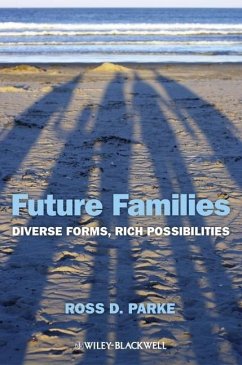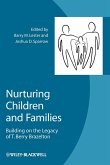An interdisciplinary look at changing family models in recent decades, Future Families draws from work in many areas including developmental psychology, sociology, cross-cultural scholarship, ethnic studies, history, legal studies, economics, and more. Ideal for courses in any of these areas, the text looks at ways in which an increased acceptance of new family forms can potentially benefit children's socio-emotional development.
Future Families explores the variety of family forms which characterize our contemporary culture, while addressing the implications of these increasingly diverse family units on child development.
Reveals the diversity of new family forms based on the most current research on fathers, same-gender parents, new reproductive technologies, and immigrant families
Illustrates that children and adults can thrive in a variety of non-traditional family forms
Shows the interrelatedness of new trends in family organization through the common themes of embedded families and caregiving in community and cultural contexts
Features an interdisciplinary approach, drawing from works in areas that include child development, family studies, sociology, cross-cultural scholarship, ethnic studies, biology, neuroscience, anthropology and even architecture
Sets an agenda for future research in the area of families by identifying important gaps in our knowledge about families and parenting
Hinweis: Dieser Artikel kann nur an eine deutsche Lieferadresse ausgeliefert werden.
Future Families explores the variety of family forms which characterize our contemporary culture, while addressing the implications of these increasingly diverse family units on child development.
Reveals the diversity of new family forms based on the most current research on fathers, same-gender parents, new reproductive technologies, and immigrant families
Illustrates that children and adults can thrive in a variety of non-traditional family forms
Shows the interrelatedness of new trends in family organization through the common themes of embedded families and caregiving in community and cultural contexts
Features an interdisciplinary approach, drawing from works in areas that include child development, family studies, sociology, cross-cultural scholarship, ethnic studies, biology, neuroscience, anthropology and even architecture
Sets an agenda for future research in the area of families by identifying important gaps in our knowledge about families and parenting
Hinweis: Dieser Artikel kann nur an eine deutsche Lieferadresse ausgeliefert werden.
Link to review in Issuu.com - Winter 2014
"The book is best thought of as a stimulus to new conversations about our conception of families and an exploration of the implications of changing family forms for children's development." (Society for Research in Child Development, 1 January 2014)
"The book is best thought of as a stimulus to new conversations about our conception of families and an exploration of the implications of changing family forms for children's development." (Society for Research in Child Development, 1 January 2014)








